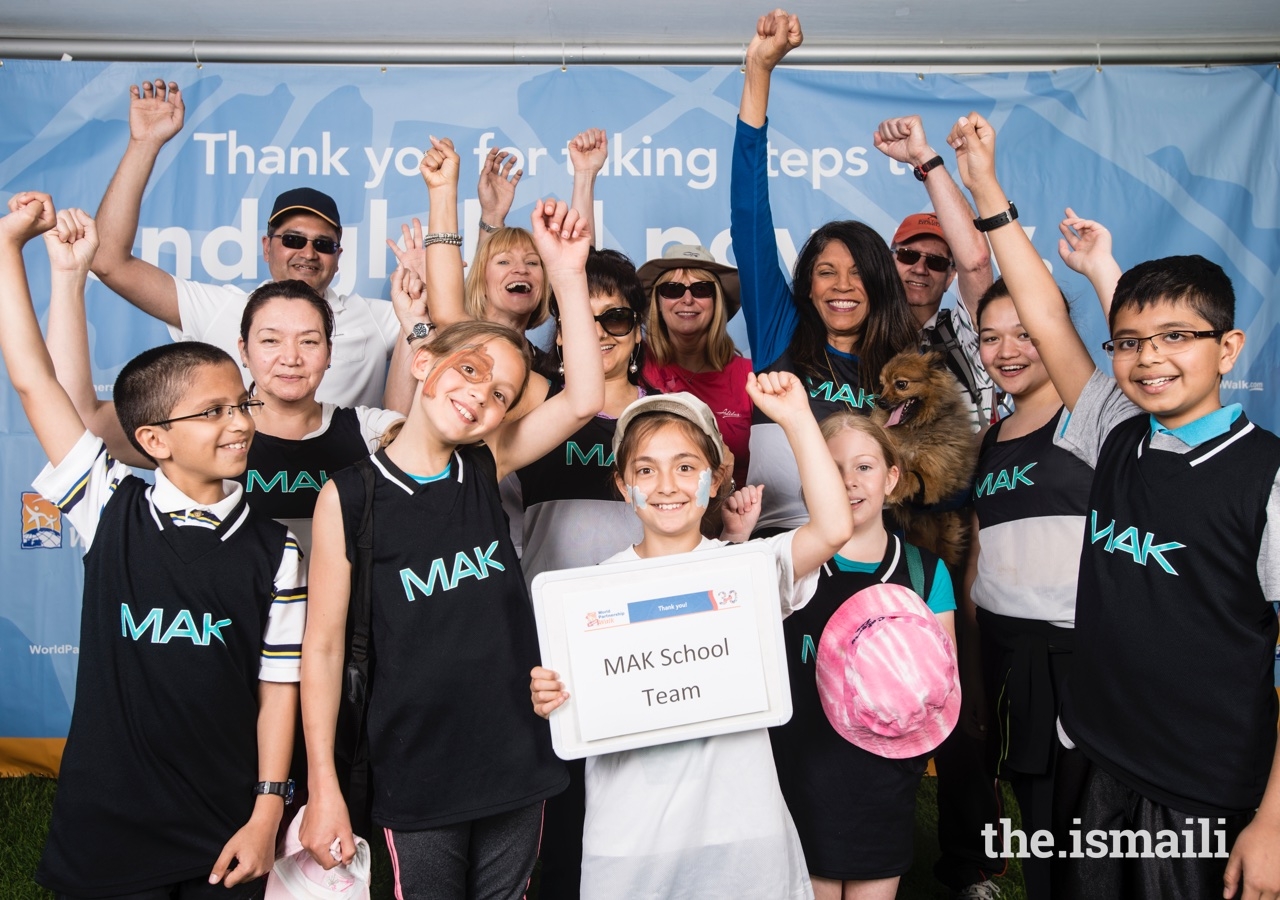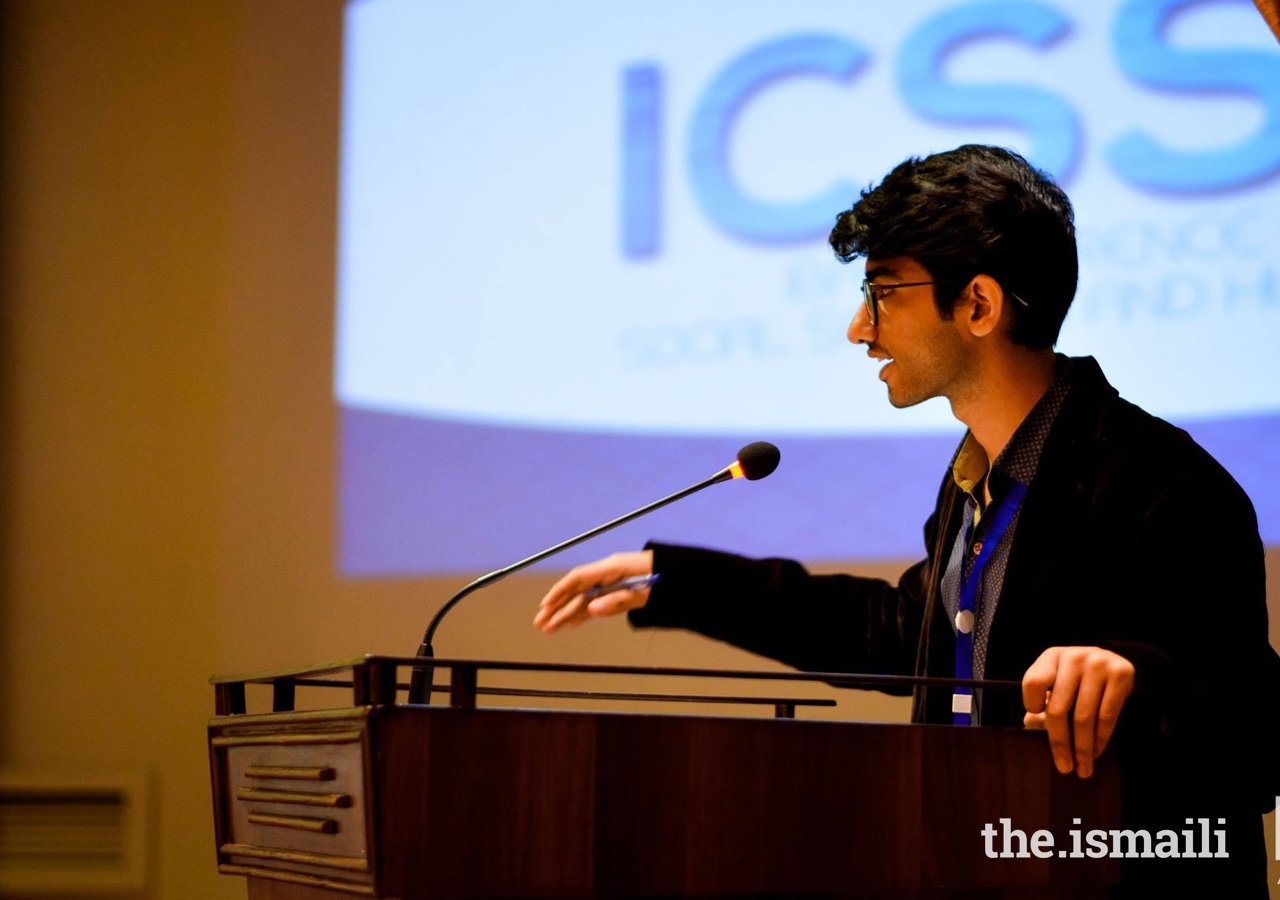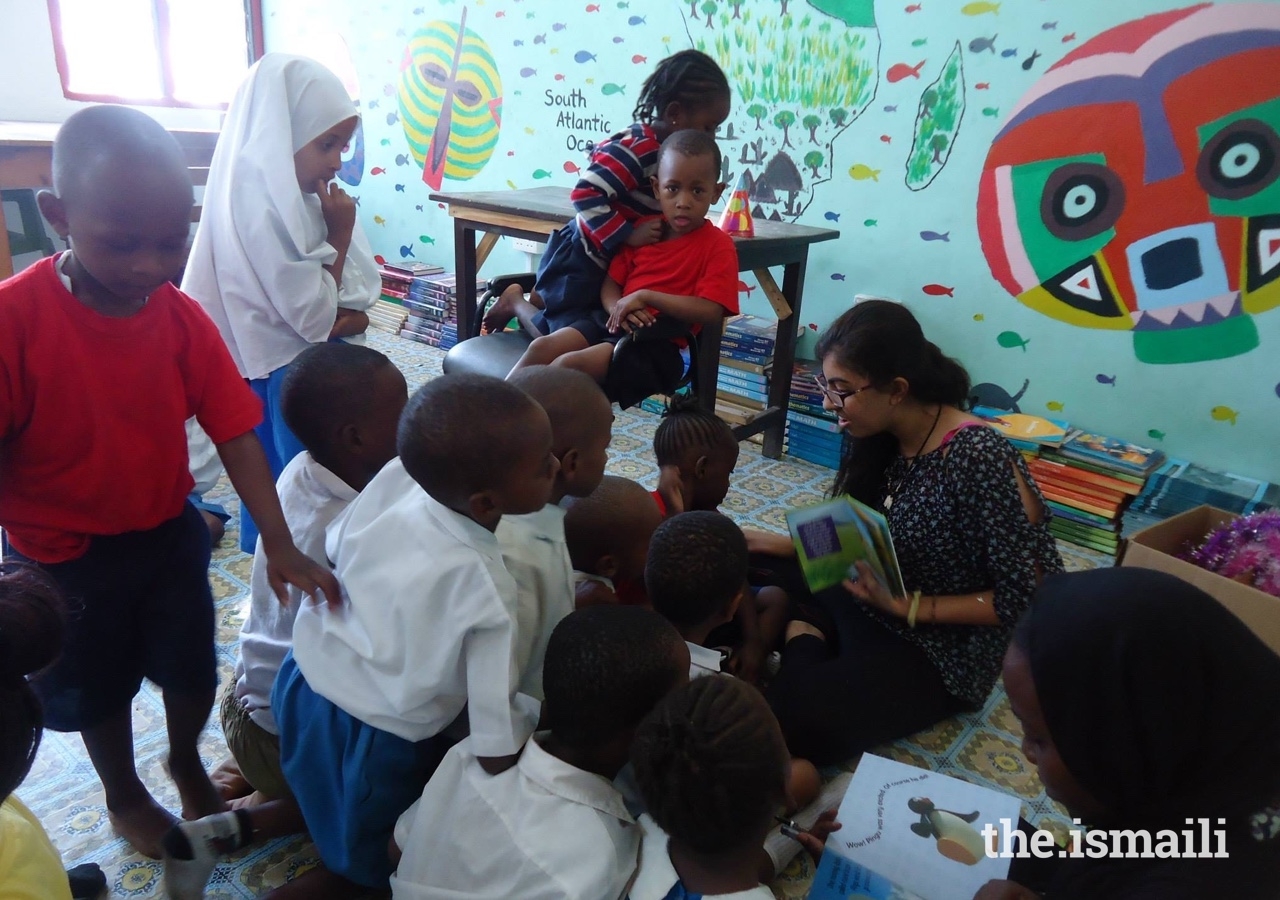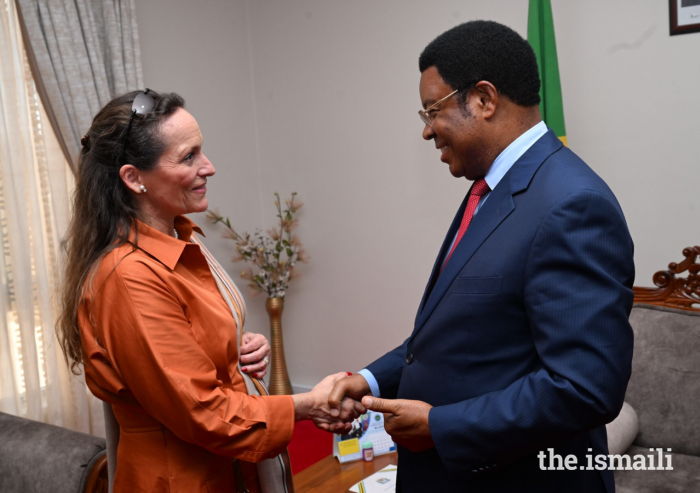Goal One of the United Nations Sustainable Development Goals is to “end poverty in all its forms everywhere.” With nearly half of the world’s population living in poverty, there is still work to do in developing and implementing sustainable solutions which target poverty’s root causes.
Imaara Keshwani (Canada)
Imaara Keshwani, 15, has been fundraising for the World Partnership Walk since elementary school. The Walk is an annual event held across Canada to raise funds and awareness for the Aga Khan Foundation’s work to alleviate poverty in the developing world. For Imaara, supporting the Walk has given her the opportunity to give back to those who don’t have access to the same opportunities she has as a student living in Canada.
“Growing up in a developed country, I have been extremely privileged,” she said. “The work I did made me feel like I was making a difference, it made me feel like I was making a change.”
To date, Imaara has raised over $20,000 for the Walk through organising bake sales at her school and hosting an annual fundraising barbeque in her local community. As someone who believes in the importance of also raising awareness about the work being done to alleviate poverty, Imaara goes door to door in her neighbourhood every year to interact with her sponsors and share how they are making a difference through their donations. She also leads her school’s fundraising team, engaging classmates in her poverty alleviation efforts.
“Spreading the word about the work that the World Partnership Walk is doing to address global poverty in my community has always been my top priority,” she said.
An avid debater, volleyball player, and member of her school’s student’s union, Imaara is passionate about making an impact in everything she does. Along with continuing to support the Walk, in the future, she aspires to attend law school and pursue politics.
“My goal is to advocate for the rights of the disadvantaged, both in Canada and around the world.”
Shanil Khowaja (Pakistan)
“Being born and raised in Hyderabad, I am well acquainted with the challenges surrounding poverty,” said 22-year-old Shanil Khowaja.
For the past six years, Shanil has been travelling to impoverished regions of Sindh, Pakistan to conduct camps and workshops for local youth. Designed to empower participants to become future leaders of their communities, the camps teach decision making, communication, and networking skills.
“I believe that gaining these skills can aid in overcoming endemic poverty,” he said.
Inspired by the camps’ success, Shanil and his colleagues decided to expand their focus to help individuals with visual impairments overcome barriers to achieving financial independence. Seeing employment as an important first-step towards breaking the cycle of poverty, they recently launched a project that provides specially-designed employability training for visually impaired individuals in their community. The training focuses on imparting skills which employers seek from job candidates and aims to help participants become more competitive applicants.
As a student studying social development and policy at Habib University, Shanil has also had the opportunity to explore his passion in an academic context. He is currently completing a year-long thesis project on the experiences of visually impaired students in tertiary education and is examining possible avenues to make the educational experience more inclusive.
Along with continuing his current projects, Shanil hopes to one day work in the public health or development sector.
Haya Panjwani (USA)
Whether it's at her local food bank, a community fundraiser, or a post-hurricane relief site, Haya Panjwani has always been fond of giving back to her community. Growing up in a household where the value of volunteerism goes back for generations, Haya recounts how her earliest memory of serving was helping her mother prepare religious education class lesson plans and cleaning Jamatkhana alongside her father.
“I serve because it’s part of our faith,” she said. “Service in and of itself is ultimately just respecting and nourishing Allah’s creation.”
Now aged 20, Haya is applying her passion for giving back to her academic pursuits. As a student studying political science and statistics at the University of Houston, she is currently working on a research project that examines the primary causes of poverty in the Greater Houston area. She hopes that a deeper understanding of poverty’s root causes will lead to more impactful and targeted solutions.
In the future, Haya hopes to work in an environment where she can combine her love for the social sciences with statistics.
“Eventually I plan on also attending a graduate program, and maybe even one day launching my own non-profit organisation.”










